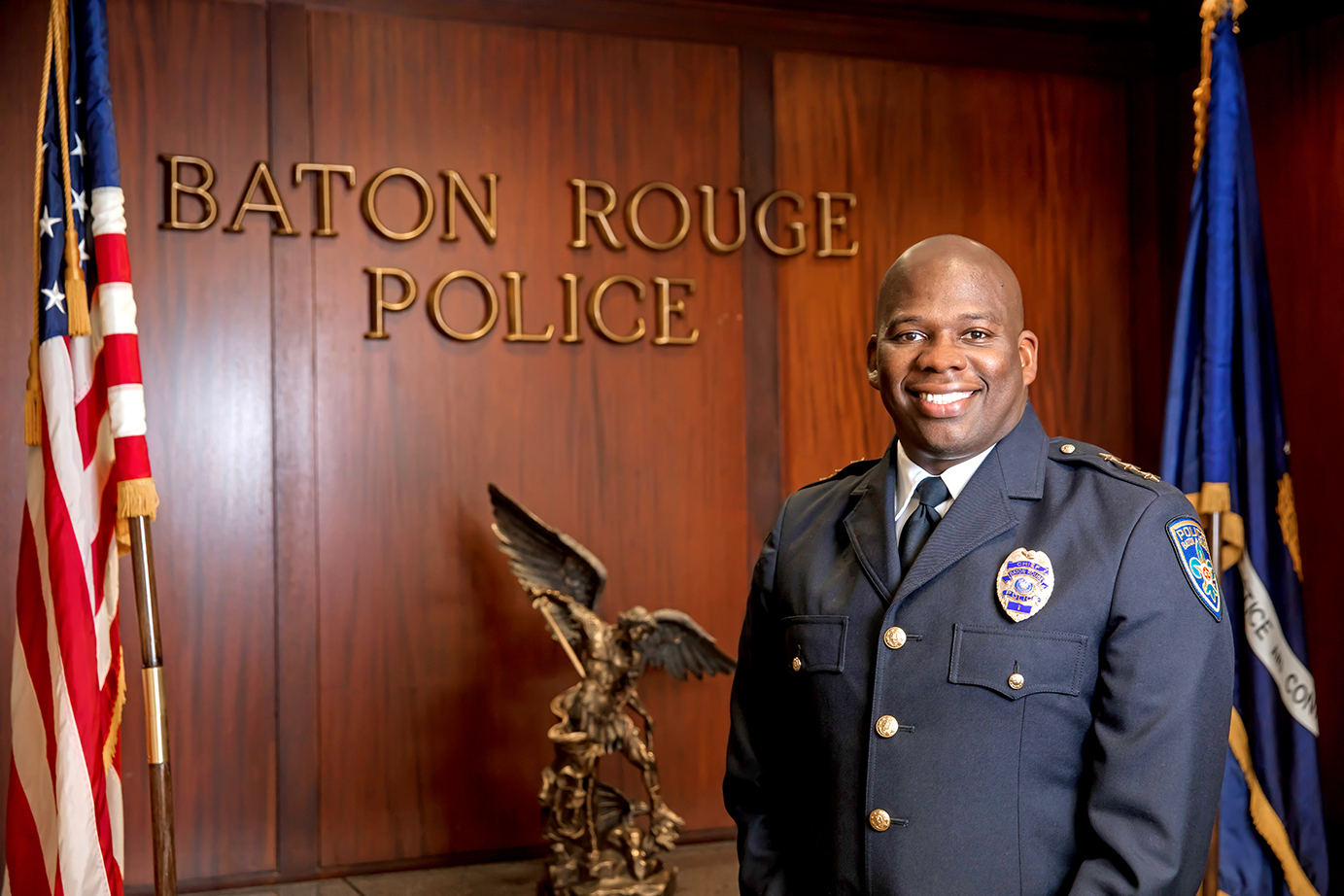
Baton Rouge’s new police chief talks community policing and a fresh perspective
On Feb. 11, a man with a history of mental illness shot “numerous rounds” at a Baton Rouge Police Department officer, hitting the officer in the face, according to the official report. Chief of Police Murphy Paul, hired less than two months prior to that, got the call every law enforcement leader both expects and dreads.
“You can’t really prepare for that,” Paul told 225 the next morning. “You have to find a way to manage the emotions, because you’re the leader of the organization, and people are watching.”
The officer’s injuries, while serious, did not appear to be life-threatening. But for a department still recovering from the deadly summer of 2016, the incident was a reminder of how dangerous the job can be.
|
|
Paul, a native of New Orleans’ Lower 9th Ward, joined Baton Rouge Police in December after more than two decades with Louisiana State Police. He says he hopes to combat crime with a combination of data-driven tactics and old-school community policing.
What attracted you to a law enforcement career?
My first positive experience with law enforcement as a young man was bumping into a state trooper at a K&B drug store. He called me “sir.”
Later in life, mom said, “You either need to get a job or get out of the house.” I took the civil service test, graduated at the top of my class and spent three years with the [Orleans] Levee District police. When I learned the Louisiana State Police were hiring, I applied.
My mother gave me a big party at the house after I was selected. I had not even gone through the academy yet, but disappointing her was never an option.
Unlike other finalists for the job, you never served in the Baton Rouge Police Department. Does that make the job harder?
When I meet with the men and women of the police department, I acknowledge that I am an outsider coming in, and it’s my job to earn their trust and respect. But I think I come in with a fresh set of eyes and a different perspective.
What are some changes officers want to see?
In my very first shift meeting, there was a young man who talked about how he has never had any leadership training since he has been here, and I’ve heard that at several other meetings. The other big one is frustration over the vehicle situation. [The fleet is said to be old and prone to breakdowns.] We have new vehicles coming in, and we’ve decided that all new vehicles are going to patrol, so that’s going to help with some of the morale issues at the district level.
What has surprised you about the job so far?
The biggest learning curve has been dealing with the processes. The police department has rules and regulations. Then you have the parish rules. Then you have the Metro Council and the Civil Service board. I really underestimated the politics.
What does community policing mean to you?
Community policing is listening to the community’s concerns when you’re making decisions. Only 47% of our homicides last year were solved. The way we change that is by convincing the people in those communities that they can come forward with information. We need their help.
Community policing is only part of the strategy. We’re using data to show where we’re having the most crime, pushing that information out in real time, and challenging our commanders to use the data in their patrol strategies.
We are working with our federal partners with the creation of a strike force. [First announced last fall, the “strike force” partnership brings together the resources of more than 50 representatives of federal and local law enforcement to target “the most violent groups in our area,” according to the U.S. Attorney’s
Office.] I can tell you that our street crimes units are out there working every night to get these individuals off the streets.
What has been your message to the community?
We need to be more professional. When you see us moving in that direction, we’re asking you to show our police officers the respect they deserve. But if a police officer is unprofessional, if you feel you weren’t treated fairly, I want you to get with someone you care about, go to the police station or to internal affairs and file a complaint.
I think our biggest challenge is addressing this culture of violence in the city among young black males. I’ve been going to barber shops to have conversations. Tell me what you think about the police department, and let’s talk about your responsibility as a citizen. My hope is that I can change the heart of someone who doesn’t look at law enforcement in a favorable way.
Interview edited for brevity and clarity.
This article was originally published in the April 2018 issue of 225 Magazine.
|
|
|
